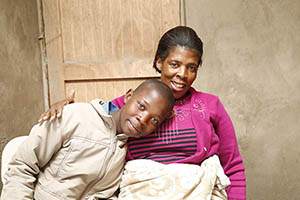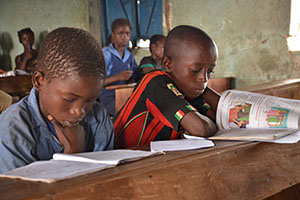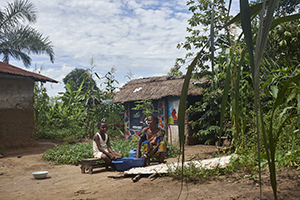About Holistic Care for Vulnerable Children
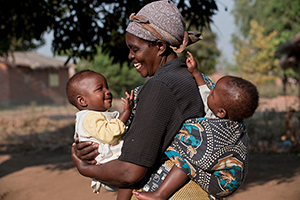
With support from public donors and private foundations, CRS supports 22 projects targeting children living with or affected by HIV. In 2017, these projects benefitted 1.4 million children and their caregivers in 16 countries.
CRS offers a mix of effective and innovative interventions to strengthen community-based services and health facility linkages to improve case management and strengthen social systems – all with the goal of supporting countries to reach the UNAIDS 95-95-95 targets.
HOW WE DO PROGRAMS FOR VULNERABLE CHILDREN
CRS’ programs for vulnerable children contribute to the UNAIDS targets by preventing new HIV infections in children and adolescents; finding children and adolescents at risk for HIV and linking them to testing; supporting HIV-positive children and adolescents to receive treatment and to achieve optimal treatment outcomes. CRS’ holistic service delivery approach for vulnerable children and adolescents is informed by an ecological model – that is, for children to survive and thrive, CRS strengthens the systems and structures that influence children:
-
Families’ ability to support vulnerable children in their care;
-
Communities’ capacity to provide a network of support for families;
-
The social service system and linkages between community-based services and health facilities; and
-
Policies in favor of vulnerable children and their families.
CRS supports children to reach their full potential and become productive members of society through programs that are evidence-based, child-centered, family-focused, community-owned, and government-supported. More so, working through the lens of integral human development, CRS’ programs are holistic, responsive to local needs, and build on local strengths.
At the household level, CRS promotes health and nutrition HIV-related care and support; psychosocial support and HIV stigma-reduction; household economic strengthening; parenting skills; safe spaces and social asset building; couples’ communication; gender-based violence prevention and response; HIV and life skills education for adolescent girls and young women and their partners; early childhood development, especially for HIV-exposed infants; and education. At the heart of CRS’ family-centered approach is a robust case management mechanism to ensure effective service delivery across these areas of intervention.
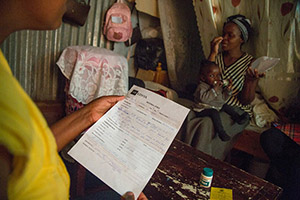
To support program implementation, CRS works with a global network of 1,800 partners, including local civil society organizations, governments, the Catholic church and other faith communities. Working with governments to reinforce the social service system, CRS focuses on financing, human resources, information management, and coordination for the OVC response. For both civil society organizations and governments, CRS’ uses a unique approach to capacity strengthening which includes institutional strengthening, capacity building, and accompaniment – components necessary to ensure sustainable change.
OUR GLOBAL REACH
CRS implements programs for vulnerable children in 16 countries, serving 1.4 million children and their families.
STORIES
ADVOCACY
CRS advocates for local ownership and capacity to respond to the needs of vulnerable children and their families and communities. This involves strengthening the human resources, financial systems, governance, and the coordination between community-based service providers and health facilities, inciting private sector commitments, and advocating for local policies to invest in the response.
Research and advocacy work done by the 4Children project in Nigeria spurred an increase in local private sector investments for vulnerable children. Read the story here.
RESEARCH AND PUBLICATIONS
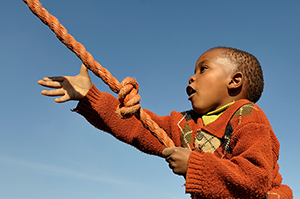
Research Partner
-
Duke University for a randomized control trial on the effect of home-based ECD services on child health and development outcomes and health service utilization among HIV-exposed children in Cameroon
Links to Resources
-
Planning and Conducting Wellbeing Days: A Manual
-
Better Care for Kids: An Overview of the SMILE Program in Nigeria
-
Tree of Life: A Workshop Methodology
-
Singing to the Lions: A Guide to Overcoming Fear and Violence in our Lives
